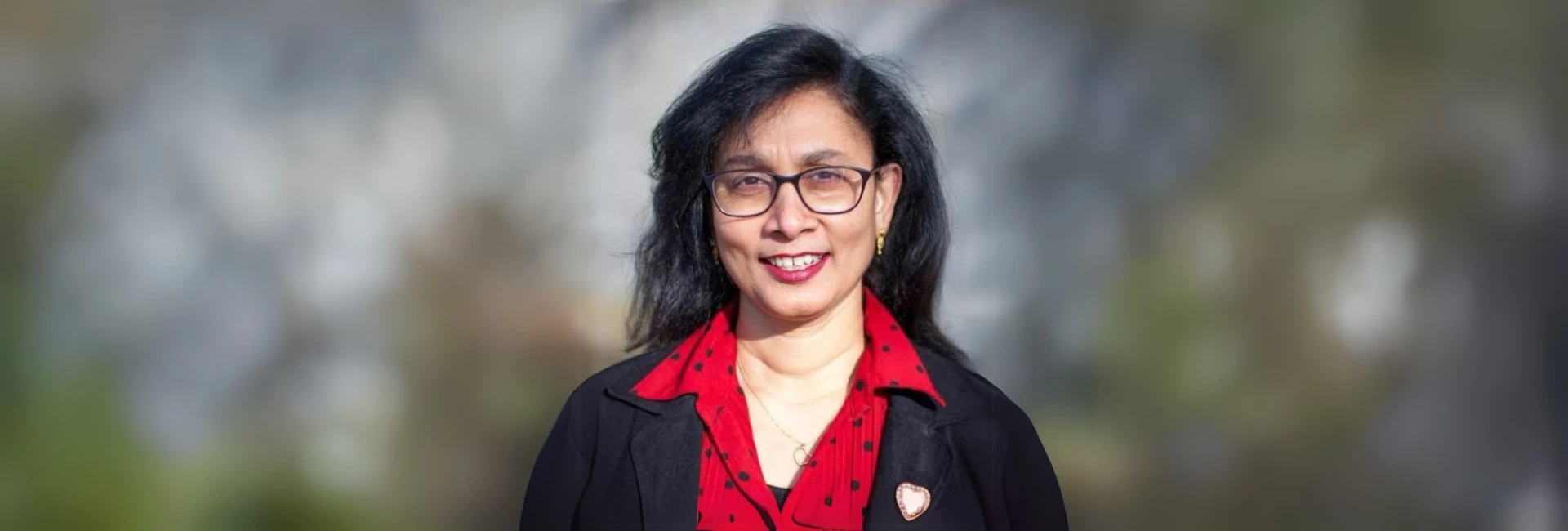(February 8, 2025) In the Trump 2.0 administration, as deportation policies grow more stringent, trafficking victims face an added layer of fear, often threatened with removal rather than receiving protection. For Ohio-based Dancy D’Souza, this reality is deeply personal. Having once lived through the nightmare of human trafficking herself, she understands firsthand the fear, coercion, and systemic failures that keep victims trapped. But rather than let her past define her, she has transformed her trauma into a mission. She supports and uplifts those who have faced similar experiences while also working to prevent aspiring migrants from becoming victims of human trafficking.
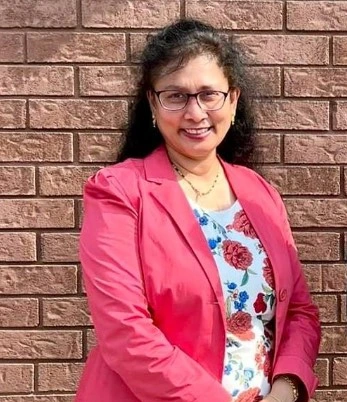
As the only Asian nominee in the Individual of the Year category for the Liberators Award 2025, Dancy considers the recognition not just her own, but a tribute to all the silent victims of trafficking whose struggles remain largely unheard. Dancy D’Souza has spent years educating communities about the realities of labour trafficking, focusing on prevention, survivor support, and rehabilitation.
“Life being threatened, fear of deportation—these are part and parcel of the perpetrators’ control over their victims,” Dancy remarks while speaking to Global Indian. Her organisation, Eyes Open International (EOI), which she co-founded with her husband, Harold D’Souza, has been nominated in the Organization of the Year category at The Liberator Awards. It is the only Indian-run non-profit nominated for this prestigious award.
The Liberator Awards
Dancy’s nomination for the Liberators Award 2025 is a moment of immense pride, not just for her but for the entire community of human rights advocates. Being the only Asian nominee in her category this year highlights the urgent need for diverse voices in the global anti-trafficking movement. The Liberator Awards, established to honour individuals and organisations dedicated to combating human trafficking, draw inspiration from William Lloyd Garrison, the American abolitionist, journalist, suffragist, and social reformer. These awards recognise modern-day warriors battling exploitation while amplifying the conversation around labour trafficking, survivor support, and systemic change.
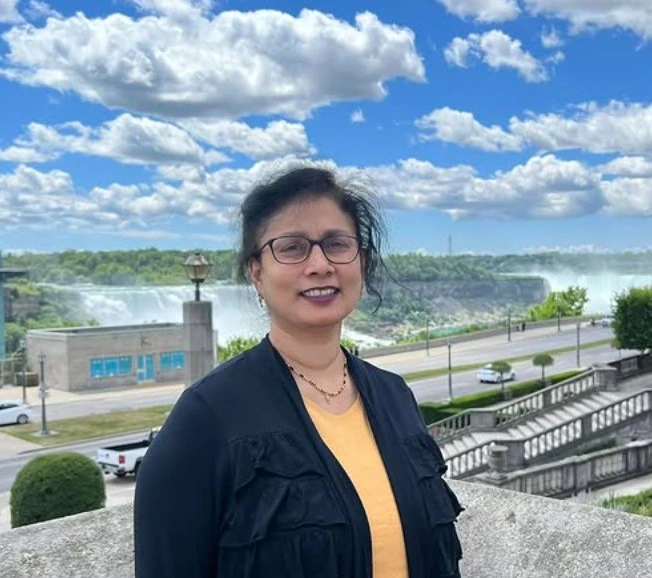
Dancy advocates for trauma-informed policies that distinguish between trafficking victims and illegal immigrants, ensuring that survivors receive protection rather than punishment.
Surviving the darkness
Dancy’s story is one of endurance and survival. For more than eighteen months, she was trapped in a nightmare of labour trafficking, a harsh reality she never imagined could happen in the United States. “People still find it difficult to believe that labour trafficking can happen in the United States of America,” Dancy D’Souza notes.
The misconception is that trafficking happens in countries like Africa, China, India, or the Philippines, but not in America. We are the face of all those countless voiceless victims.
Dancy D’Souza
The reality of her situation was grim. Controlled by traffickers who threatened her family’s life, Dancy D’Souza lived under constant psychological and emotional distress. “When you are in the trafficking situation, it is too bleak and looks hopeless,” she recalls. “Faith, love, and prayers are the only hope that keeps you going. The tunnel of despair is long and dark but the beacon of light which is actual freedom, at the end of the tunnel is what keeps you going.”
View this post on Instagram
Breaking free from her traffickers did not immediately end her family’s struggles. Survivors face enormous challenges even after their so-called freedom. Basic needs such as shelter, food, and medical care remain inaccessible to many. “Maslow’s theory of needs is tenfold applicable to survivors. Medical, psychological, social, and emotional needs have to be met, but victims have no access to these,” says Dancy who has turned her lived experiences into a drive to empower others.
The journey to America and Harold’s appointment under Trump
Dancy and her husband, Harold, along with their two small boys moved to the United States from India in 2003, hoping for better opportunities and a brighter future for their family. However, their American dream quickly turned into a nightmare when they fell victim to labour trafficking. Harold, a former management professional in India, was deceived by an employer who promised a lucrative job opportunity and H-1B visa. Instead, their documents were confiscated, and they were forced into exploitative labour under conditions of fear and control.
After months of struggling to break free from their traffickers, Harold D’Souza emerged as a leading advocate against human trafficking. His efforts were recognised at the highest levels of government, and he was appointed to the U.S. Advisory Council on Human Trafficking under President Barack Obama and later reappointed by President Donald Trump. Serving from 2015 to 2020, Harold played a pivotal role in shaping policies to combat modern slavery and advocate for survivor rights. His tenure transformed him from a victim to an expert consultant working with key governmental bodies to address trafficking.
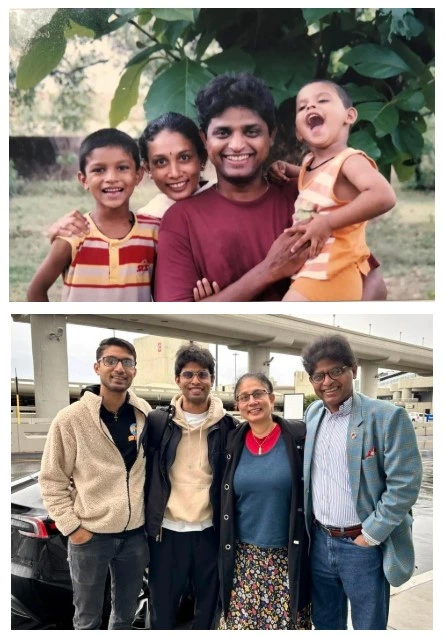
Then and Now – Dancy and Harold with their sons Bradly and Rohan
Dancy has stood by Harold through both his ordeals and triumphs, playing a significant role in fulfilling his life’s purpose through the initiatives of their non-profit Eyes Open International. Now, their two sons, Bradly and Rohan, who were young children when their parents became victims of trafficking, are professionals and play key roles in driving the non-profit forward.
A legacy of impact and a call for change through Eyes Open International
Eyes Open International work towards the policies and frameworks necessary to identify victims, provide rehabilitation, and prevent future trafficking cases.
Through collaborations with government agencies, NGOs, and grassroots organisations, the non-profit has contributed to developing victim-centred approaches that put survivors at the heart of decision-making processes. This approach ensures that victims do not just regain their freedom but also reclaim their dignity and ability to lead independent lives.
Dancy D’Souza emphasises the need for continuous advocacy to bridge gaps in support systems for survivors.
The fight doesn’t end with escaping the traffickers. Survivors need a holistic system that addresses not only their immediate safety but also long-term rehabilitation, economic stability, and emotional healing.
Dancy D’Souza
One of the most pressing issues she highlights is the lack of accessible mental health care for survivors. “Post-trafficking trauma is a reality we cannot ignore. We must establish specialised mental health services tailored to survivors’ experiences.”
A message of hope and determination
As Dancy D’Souza continues her advocacy, she remains steadfast in her belief that change is possible, but only through collective action. With the world’s eyes on human trafficking now more than ever, she urges governments, institutions, and individuals to unite in creating lasting solutions.
Dancy’s message to survivors and advocates is one of unshakeable determination: “Never give up. Try, try, and success will be yours”. Her work is a call to action for governments, institutions, and individuals to take responsibility in eradicating trafficking and providing real, tangible support to survivors. “There is a need to shine a light on human suffering. Policymakers, lawmakers, law enforcement agencies, social workers and such, need to be trauma informed so as to be able to treat victims humanely and with respect, compassion and dignity.”
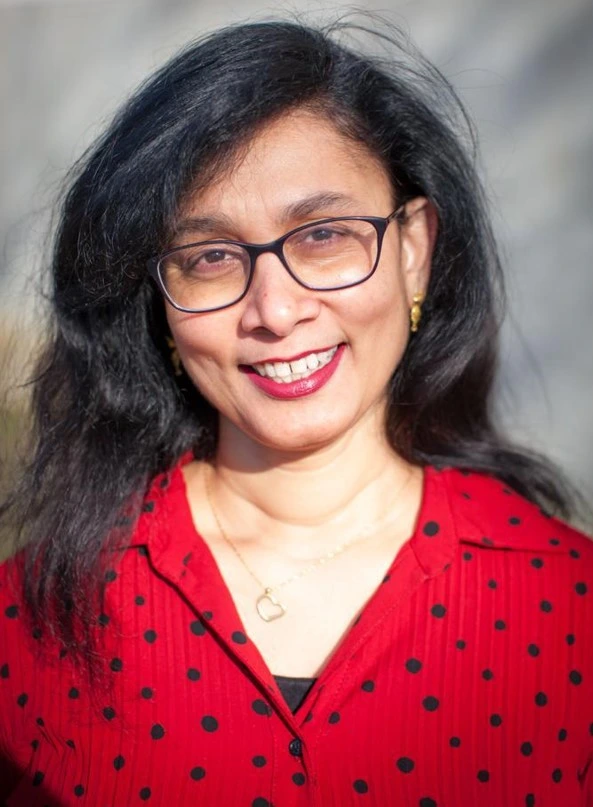
Her fight does not end with the Liberators Awards ceremony, it is an ongoing battle to break the cycle of trafficking, support survivors, and build a future where no one falls victim to modern slavery.
Her journey is far from over. If anything, it is only just the beginning.

